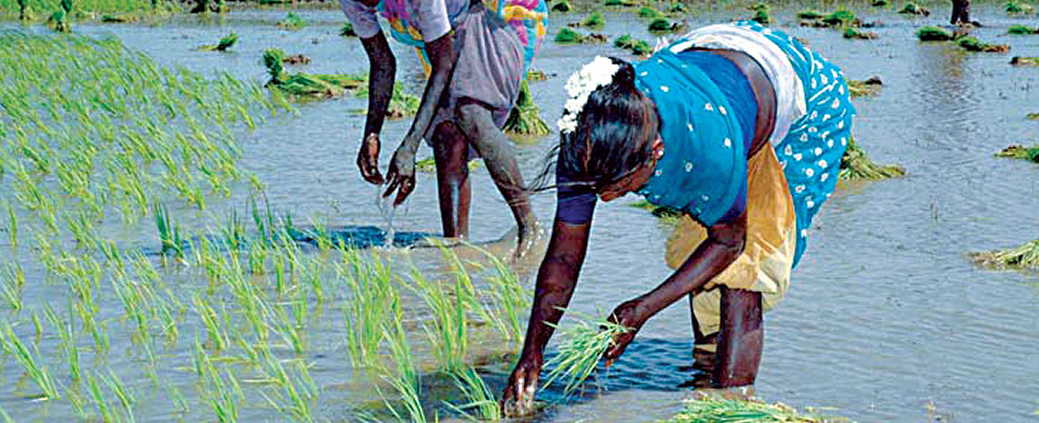Exclusion of young people, women and the disabled from public contracts : What mechanisms should be used to give preference to vulnerable groups?
Saër Niang, Director General of the French Public Procurement Regulatory Authority (Arcop), said yesterday that young people, women and people with disabilities are generally excluded from public procurement contracts. According to him, the challenge today is to find mechanisms that grant preferences and favours to these categories, so as to be able to include them in public contracts, taking into account the handicap that hinders them. He said this at the opening ceremony of the training week organized by the World Bank, in association with Arcop.
Yesterday in Dakar, the World Bank, in association with the Public Procurement Regulatory Authority (Arcop), organized a week of training on sustainable public procurement (SPP). During the discussions, Arcop Director General Saër Niang pointed out that people with disabilities, young people, who make up a large proportion of the population, and women are excluded from public procurement contracts.
For him, “the problem is absolutely to find mechanisms that grant preferences and favours to these categories. This, he continued, is to enable them to be included in public contracts, so that they can also access and win contracts, taking into account the handicap that hinders them and means that competition does not favour them”.
Mr Niang explained that “sustainable public procurement (SPP) is now a strategic concept aimed at integrating economic, social and environmental considerations into the public procurement cycle. As well as offering enormous potential benefits, SPP is perfectly aligned with the United Nations’ Sustainable Development Goals and the World Bank’s revised mission to end extreme poverty and boost prosperity on a liveable planet”.
At the same time, Saër Niang emphasized that “the collaboration between Arcop and the World Bank has reached cruising speed, while involving as many key players and stakeholders as possible in the promotion of sustainable economic development”.
Indeed, he added, over and above the national strategies and policies supported to contribute to development objectives, the World Bank is focusing its commitment on supporting the greening of the economy. According to him, their collaboration will undoubtedly lay the foundations for the sustainable and inclusive transformation of the Senegalese economy.
In the same vein, the CEO of Arcop stressed that “nature is suffering and sending us strong signals that we can no longer ignore”. In this sense, he recalled that the public procurement tool is increasingly used as a strategic instrument in policies, and also environmental policy, which constitutes a real threat that countries are experiencing, has also pushed to pay particular attention to this dimension.
“Future sessions will explore the full range of sustainable public procurement”
For his part, Xavier Bonneau, Director of Operations for the World Bank in Senegal, pointed out that in West Africa, “public procurement represents around 11.5% of GDP, or a total of around 80
billion dollars spent each year on goods, services and works, according to the Open Contracting institution. Spent wisely, they represent an important economic lever for ensuring social well-being
and sustainable economic growth”.
Over the past decade, he says, “governments have increasingly recognized the potential of public procurement as a strategic catalyst for economic growth and social well-being. Sustainable public
procurement transcends the idea of a mere slogan or buzzword. It is becoming a key principle of governance.
In his view, this training is more than just an apprenticeship. Because, he explained, “it’s about preparing ourselves to make positive changes to our organizations and our communities. Sustainable public procurement is at the heart of environmental, social and economic progress. It is our responsibility, particularly in the French-speaking countries of West and Central Africa, to set an example by integrating sustainable development into our procurement practices”. He adds: “Our objectives are simple: to understand the rules and procedures governing ODA, to enhance our theoretical and practical skills, and to effectively integrate sustainability principles into our public procurement processes.”
For Mr Bonneau, “the aim is to cover everything from the legislative framework for sustainable procurement to the application of ODA tools, focusing on improving skills and assessing the impact of our actions. This training is essential for those responsible for managing public funds and those in charge of regulating them, as it ensures that our procurement practices produce positive results on all fronts”.
In the same vein, he informed that “future sessions will explore the full range of sustainable public procurement. You will review the entire procurement cycle, learning how to approach each stage with a view to achieving sustainable results. You will discuss strategic planning, tender evaluation and contract management, among other key areas”.
FATIMA ZAHRA DIALLO



